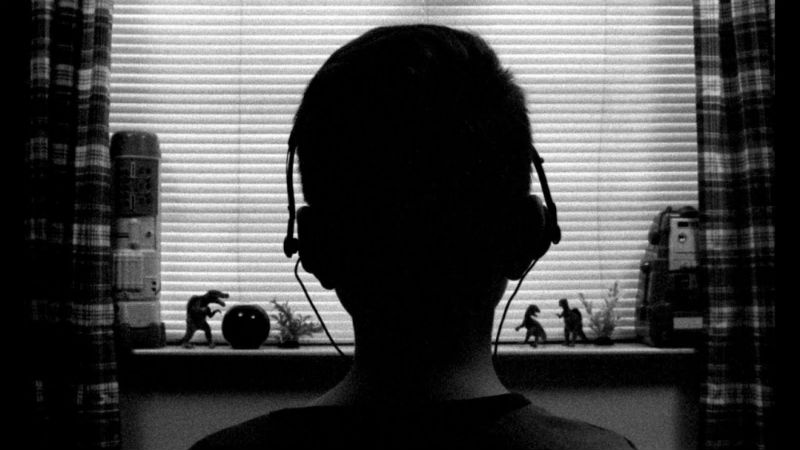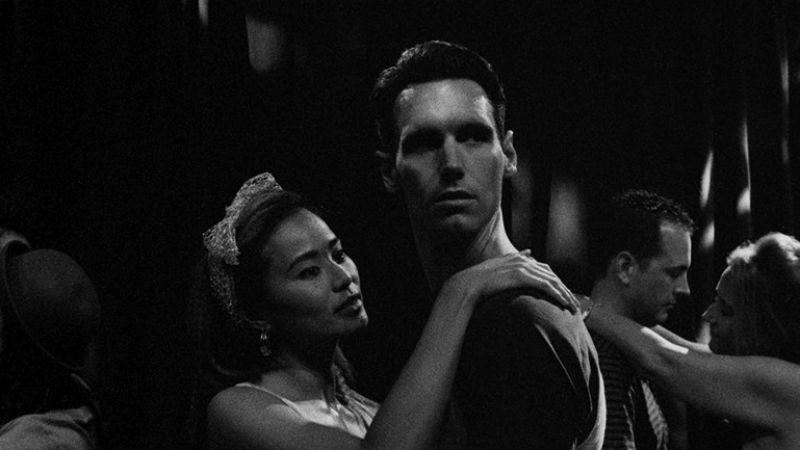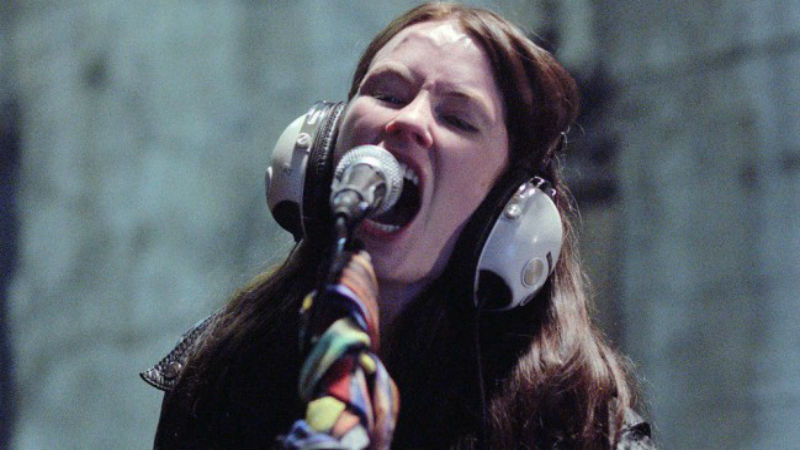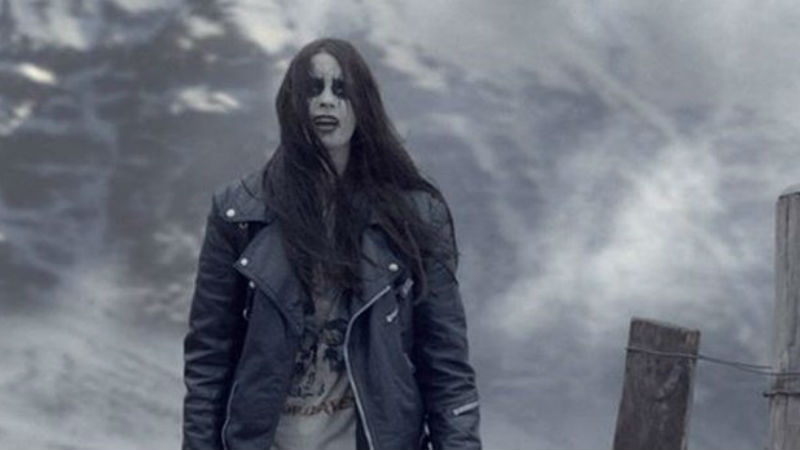In these days of US-style promotion, branding and media, it’s easy to think of artists as high profile, rich and successful. While some are, that’s not what an artist is: an artist is, quite simply, someone who makes art. (If they’re a good artist, they make good art. Whatever that is.) The subject of Morley’s new road movie is the artist Audrey Amiss (1933-2013) who, although she exhibited her work a number of times during her lifetime, received scarcely any recognition in that period. She suffered from mental health issues and was in and out of mental hospitals throughout her life.
Audrey (Monica Dolan) is regularly visited in her London flat by psychiatric nurse Sandra (Kelly Macdonald). One day, she asks Sandra to drive her to an exhibition which has an open call for artists, as she’s never exhibited and feels the time has come. Sandra first turns her down, but on a later date after some consideration agrees – although she’s somewhat horrified en route when Audrey’s “local” turns out to mean “Sunderland”, the best part of 300 miles North.
Thus, the pair yet out in Sandra’s bright yellow car Sunshine band undergo a series of encounters with people from Audrey’s past. In reality, they aren’t the people from Audrey’s past, but she mistakes them as such in her mind. Just as she isn’t always convinced Sandra is really Sandra or even that she herself wasn’t taken over by an imposter at an early age (following a specific traumatic experience, which the narrative explores in the final reel towards the end of Audrey and Sandra’s journey).
There are many joys to be experienced on the way. A wise vicar (Gary Bates) breaks into a church lavatory after Audrey accidentally locks herself in and, unlike numerous media presentations of clergy, manages to say and do just the right things to help her. A hitchhiker (Issam Al Gussein), who turns out to be another artist, gets thrown out of the car after addressing Audrey as a “freak”. A van driver (Neal Barry), who gives Audrey a lift after a row with Sandra, seems a pleasant chap until he starts trying to take sexual advantage of her (a rare moment when this largely brave and original film lapses into cliché). Eventually, she visits unannounced her Sunderland-based sister (Gina McKee) who she’s not contacted for six years.
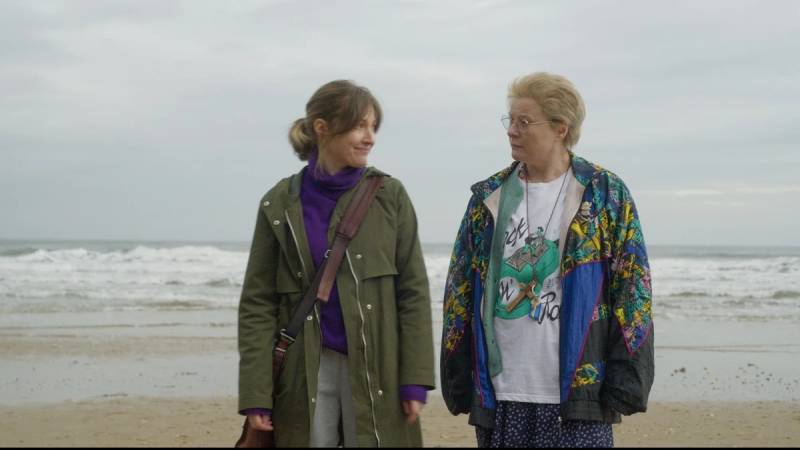
Dolan is fantastic as the woman who exhibits both a personality disorder and a talent for expressing herself visually; her performance is ably complemented by short bursts of little sequences showing three or four of Audrey’s works in rapid succession throughout. The role is a gift for an actor, not only because of the wide palette of motion and behaviour undergone by Audrey in the course of the film, but also because she has to interact with characters she believes to be a person from her past when in fact they are someone else she has never met.
Macdonald provides an anchor to Dolan’s out of control persona, while McKee, although she doesn’t appear until late in the story, proves a huge presence in the final reel, a good and generous sister.
There’s a fascinating religious (Christian) subtext to all this, too. Audrey wears a cross and, however messed up her life might be, appears to have a deep-seated faith in God as expressed in the Christian tradition. As well as the aforementioned episode in a rural church building (the name St. Christina The Astonishing can be seen on a notice board inside the premises), there are comforting religious words, there is one in-car conversation about Jesus, there are references to hymns and hymn singing which, as any Christian person will tell you, can carry and communicate great nuggets of spiritual truth, often in a clear and concise, albeit almost subliminal way. Not that the film is proselytizing, or anything like that: far from it.
Morley is far from your typical British director; she tends not to repeat herself, except for the fact that her films are consistently provocative. This new film is well up to par. As a bonus, it has a scene with Morris dancers.
Typist Artist Pirate King premiered in the 26th Tallinn Black Nights Film Festival, when this piece was originally. Its UK premiere takes place at the 31st Raindance Film Festival. In cinemas on Friday, October 27th. On Curzon Home Cinema on Friday, December 8th.









